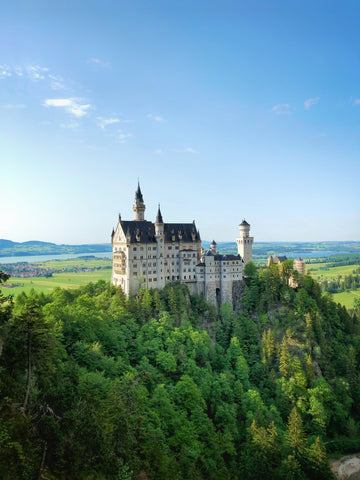
From Oktoberfest to Christkindlmarkt to the The Auer Dult on Mariahilfplatz, Munich has always been a cultural destination bursting with character and authentic Bavarian charm. Although Covid impacted Bavaria’s most famous festivals and events, rest assured that the travel comeback of 2022 is one not to be reckoned with. Munich’s old world architecture and tradition make this city a bucket list destination for many. And let’s not forget football…

The Munich is infamous for its number of breweries and hearty beer, carb-indulgent pretzels, schnitzel and lederhosen-clad Oktoberfest celebration. According to Britannica, Munich, or Müenchen (“Home of the Monks”), traces its origins to the Benedictine monastery at Tegernsee, founded circa 750 CE. The monks were later granted the right to establish a market where the road from Salzburg intersects with the Isar River, thereby fortifying the marketplace and laying the groundwork for what was to become a bustling town.

There is one family whose legacy contributed significantly to the town’s fortune for over 700 years – the Wittelsbachs. During the 14th century, the first of the Wittelsbach line of Holy Roman emperors, Louis IV (Louis the Bavarian), set about developing the town into a formidable city, which remained largely unchanged until the late 1700s. Munich increased in wealth and size and prospered until the Thirty Years’ War, which began in 1618 and resulted in an estimated 4.5 – 8 million lives lost.

Louis I, king of Bavaria from 1825 to 1848, was credited with the planning and development of modern Munich, establishing the city’s characteristic appearance. This century was Munich’s greatest period of growth and development. Protestants became citizens for the first time in what was previously a strictly Roman Catholic people. The city’s population to 500,000 by 1900. Munich’s cultural importance in Europe was greatly advanced by the popularity of composer Richard Wagner. This essentially revitalized Munich’s reputation for being a musical and cultural epicenter, teeming with talent.
It was not until Louis III exiled himself from the community in 1918 that the Wittelsbach dynasty finally ended. What followed World War I, was a movement that resulted in right-wing political ferment, and its unfortunate reputation for being the inaugural setting for Adolf Hitler assuming the position of leader to the Nazi party.

Notwithstanding Oktoberfest, the Bavarian capital is truly an elegant city with four defined seasons, and full of great entertainment, bars, restaurants, galleries and museums. The prospect of a delicious, perfectly seasoned Schnitzel will not disappoint.
Join us. Be a LuxeVoyager.
